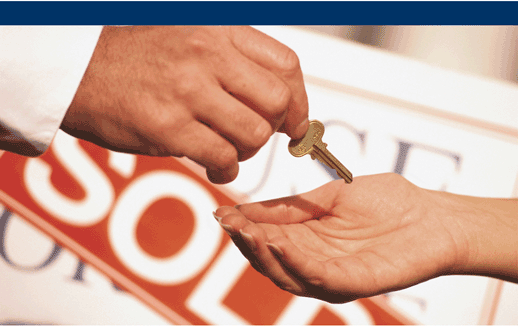1. Don’t buy if you can’t stay put
If you can’t commit to remaining in one place for at least a few years, then owning is probably not for you, at least not yet. With the transaction costs of buying and selling a home, you may end up losing money if you sell any sooner – even in a rising market. When prices are falling, it’s an even worse proposition. On the other hand, if you plan to buy a property now, live in it for a few years, move-up and keep the current property as a rental, then the sooner you get in the market, the sooner you’re accruing equity.
2. Start by shoring up your credit
Since you most likely will need to get a mortgage to buy a house, you must make sure your credit history is as clean as possible. A few months before you start house hunting, get copies of your credit report. Make sure the facts are correct, and fix any problems you discover. For more information on accessing your credit report and fixing any issues that arise, have a look at our Credit Repair Tips and Advice.
3. Aim for a home you can really afford
Use one of many calculators available online to get a better handle on how your income, debts, and expenses affect what you can afford. Also make sure you take into account other monthly expenses by doing a household budget. What the bank says you can afford and what is truly affordable for your lifestyle are often two very different things.
4. Ensure you have at least 5% down payment
Depending on your credit history and your provable income, you may require more than a 5% down payment but 5% is now the minimum in Canada – long gone are the 0% down days! This 5% can come from personal savings and investments, gift from immediate family or, in the case of a few lenders, it can be borrowed as long as you can debt service both this payment and the new mortgage.
5. Get professional help
Even though the Internet gives buyers unprecedented access to home listings, most new buyers (and many more experienced ones) are better off using a professional agent. Look for an exclusive buyer agent, if possible, who will have your interests at heart and can help you with strategies during the bidding process. Using a Realtor is free for the homebuyer.
6. Before house hunting, get pre-approved
Getting pre-approved will you save yourself the grief of looking at houses you can’t afford and put you in a better position to make a serious offer when you do find the right house. Not all lenders will review your file in it’s entirety for a pre-approval, so make sure you know what the lender is reviewing and what they are not.
7. Do your homework before bidding
Your opening bid should be based on the sales trend of similar homes in the neighbourhood. So before making it, consider sales of similar homes in the last three months. If the area, in your price range, is demanding prices higher than list (i.e. bidding wars), then going in below list would be an error that could cost you that home. This is where using a Realtor is key. They not only have access to sales data put they can also analyze that data to understand why certain homes sold at the price they did, and what the current market environment is like, to ensure your bid accurately reflects the value of the property.
8. Hire a home inspector
Sure, your lender will require a home appraisal anyway. But that’s just the bank’s way of determining whether the house is worth the price you’ve agreed to pay. Separately, you should hire your own home inspector, preferably an engineer with experience in doing home surveys in the area where you are buying. His or her job will be to point out potential problems that could require costly repairs down the road.



Leave A Comment